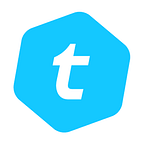What is an ICO anyway? The Initial Coin Offering explained.
ICOs are gaining popularity among cryptocurrency enthusiasts, but despite recent buzz, they are still confusing for those outside the world of cryptocurrency. In short, an “Initial Coin Offering” is a crowdsale of a new crypto asset that powers a new blockchain or service. ICOs represent a powerful new option for startup financing, particularly for those related to blockchain technologies. By August 2017, ICOs had raised more funds that early stage VC investment, which is no small feat. Understandably, people want a piece of the pie — even if they don’t fully understand what is in it.
For tech founders using the ICO model, the attraction is multifaceted. It allows them to retain agency and autonomy in their work, while also allowing it to be disseminated in a decentralized way. Ideologically speaking, this aligns with the very core of blockchain itself — an unchangeable, distributed, peer-to-peer network.
Given that recent ICO fundraising in the blockchain space has exceeded the amount raised by traditional seed investment, ICOs can already be considered a game changer for tech startups. Many are suggesting that the current ICO and blockchain boom is this generation’s dot-com boom, with investors ready and willing to take the plunge into uncharted territory.
According to CoinDesk’s most recent quarterly report, ICOs generated US$797 million in fundraising for blockchain startups in the second quarter of 2017 — compared to just US$235 million in traditional venture capital funding for such companies. Filecoin, which closed a roughly month-long ICO period on September 7, broke existing ICO records with a total of US$257 million raised since August 10. That figured includes a pre-sale of US$52 million that was joined by Silicon Valley VC heavyweights Sequoia Capital and Andreessen Horowitz. The previous record was held by Tezos, which raised US$232 million in a July ICO.
Until recently most ICOs, wary of uncertainty around possible SEC intervention, have not allowed US investors. Through July of this year, the SEC had remained silent on the issue, leaving a cloud of uncertainty around the legality of ICOs. Following an investigation into the DAO after a large-scale hack, the SEC announced that DAO tokens (a digital asset) were to be classified as securities. The report confirmed that “sponsors of offerings conducted through the use of distributed ledger or blockchain technology must comply with the securities laws.” The SEC did not bring any charges in this particular case and instead used the opportunity to caution that those engaged in the industry, operating in the US, must comply with federal security laws. A significant implication of the report, however, was that it implied that ICO tokens that did not have securities characteristics — as described in the report — were not likely not be regulated as securities.
Most have viewed the SEC statement as providing a healthy dose of clarity around ICOs and their potential regulation. Since the statement, a number of ICOs including the Filecoin ICO have begun to accept US investors. On August 22nd, US celebrity investor Mark Cuban backed a new $20 million cryptocurrency venture fund to participate exclusively in ICOs. Meanwhile, securities regulators in Singapore and elsewhere have quickly followed suit in cautioning investors and clarifying what sort of ICO tokens would be subject to regulation as a security. China has been alone in implementing what most assume to be a temporary ban on ICOs. While the action pulled some steam out of the ICO bubble, many are welcoming this as a market correction and reasonable crackdown on fraudulent ICOs that have been prevalent in China.
Looking at the bigger picture, it is interesting to note that the SEC stayed silent on ICOs for almost three years (the first ever ICO was in 2014). ICOs represent a totally new decentralized hybrid machine for finance and technology, and this makes it challenging for regulators used to centralized systems operating in clear geographies. This new system is evolving fast, and it is no coincidence that many central banks have digital currency on their agenda. Still, it remains to be seen whether central banks will catch up in time to shape — or even be a part of — this hybrid evolution.
It’s important to note that ICOs are not just for launching cryptocurrencies. There is an large community exploring the myriad applications for this new financing model. The Token Summit was held at the NYU Stern School of Business in May, with the sole focus of exploring the landscape of the token-based economy, exploring “economics, regulation, and best practices around blockchain-based tokens, protocols, and crypto-assets.”
Like it or not, even with the regulatory concerns, ICOs are clearly disrupting investment norms. Investors, wanting to stay ahead of the curve, are fueling the fire. Before too long, ICOs will likely be commonplace even for non-crypto startups. Bankers are beginning to kick and scream, but cryptocurrencies and ICOs appear to be here to stay. They provide an innovative approach to fundraising and governance that is decentralized and transparent. So while it is still too early to know how far ICOs will fly, this fintech renaissance is certainly one worth watching.
Telcoin Website: telco.in
Sources:
CoinDesk. State of Blockchain — Q2 2017. https://media.coindesk.com/uploads/2017/09/State-of-Blockchain-Q2-2017-.pdf
CoinDesk. $257 Million: Filecoin Breaks All-Time Record for ICO Funding. https://www.coindesk.com/257-million-filecoin-breaks-time-record-ico-funding/
CoinDesk. ICO Tracker. https://www.coindesk.com/ico-tracker/
Medium (David Siegel). Understanding The DAO Hack for Journalists. https://medium.com/@pullnews/understanding-the-dao-hack-for-journalists-2312dd43e993
U.S. Securities and Exchange Commission. SEC Issues Investigative Report Concluding DAO Tokens, a Digital Asset, Were Securities. https://www.sec.gov/news/press-release/2017-131
CNBC. Mark Cuban backs new $20 million cryptocurrency venture fund. https://www.cnbc.com/2017/08/22/mark-cuban-backs-new-20-million-cryptocurrency-venture-fund.html
CoinDesk. China’s ICO Ban: Understandable, Reasonable and (Probably) Temporary. https://www.coindesk.com/chinas-ico-ban-understandable-reasonable-probably-temporary/
Bloomberg. Some Central Banks Are Exploring the Use of Cryptocurrencies. https://www.bloomberg.com/news/articles/2017-06-28/rise-of-digital-coins-has-central-banks-considering-e-versions
Token Summit 2017. http://tokensummit.com
CoinDesk. Crypto Is Here to Stay (Whatever Jamie Dimon Might Say). https://www.coindesk.com/crypto-is-here-to-stay-whatever-jamie-dimon-might-say/
